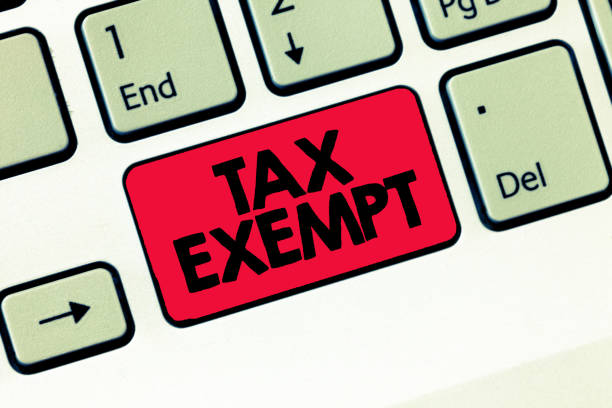
What Is Tax Exempt?
Tax exempt alludes to specific sorts of merchandise and monetary protections (like civil bonds) that are not burdened. It additionally alludes to income that are not burdened. The tax exempt status of these merchandise, ventures, and pay may boost people and business substances to build spending or effective money management, bringing about financial improvement. Tax exempt may likewise be known as expense excluded.
Understanding Tax Exempt
Tax exempt buys and speculations don’t bring about the ordinary expense result of different buys and ventures. For example, tax exempt ends of the week happen in many states where, on more than one occasion per year, store buys are not burdened, in this manner, lessening the general expense for the shopper. Often these deals charge occasions happen before school begins in the Tumble to boost spending on school supplies, garments, PCs, adding machines, and so on.
Legislatures will frequently give a tax reduction to financial backers buying government securities to guarantee that enough subsidizing will be accessible for use projects. Tax exempt speculations like duty excluded civil securities (or munis) permit financial backers to procure interest personal expense free. Interest may possibly be tax exempt at the government level if, for instance, a California inhabitant purchases a New York metropolitan security. These expense regulations, nonetheless, differ by state. For example, a few states, for example, Wisconsin and Illinois charge revenue procured on all muni securities, including their own, dependent upon a couple exceptions. In the mean time, states, for example, California and Arizona excluded revenue from charges provided that the financial backer lives in the giving state.
For instance, expect a nearby government in California gives a civil cling to back a sporting park. A financial backer, John Smith, who lives in the condition of issuance buys the $5,000 standard worth security which develops in two years and has a coupon pace of 3% to be paid every year. Toward the finish of every one of the two years, the financial backer gets interest pay of 3% x $5,000 = $150. This pay won’t be burdened by both the administrative and state government. After the bond develops, John Smith will accept his unique head venture back from the nearby government.
The Frozen North, Florida, Nevada, South Dakota, Tennessee, Texas, Washington and Wyoming don’t have a state-level personal duty, so they normally excluded revenue on all muni bonds. Depository protections gave by the U.S. government, in particular the U.S. Reserve funds Security and Depository Expansion Safeguarded Protections (TIPSs), pay interest that is tax exempt at the state and neighborhood levels, yet not the government level.
As indicated by the Inside Income Administration (IRS), interest on a state or nearby government commitment might be tax exempt regardless of whether the commitment isn’t a bond. For instance, interest on an obligation confirmed simply by a standard composed understanding of procurement and deal might be tax exempt. Likewise, interest paid by a guarantor on default by the state or political region might be absolved from charge. Shared reserves that hold a blend of stocks and metropolitan bonds will have the part of profit got from the bonds charge excluded under government personal expense rules and conceivably liberated from state charges relying upon the area from which the securities started as well as the citizen’s condition of home.
Since tax exempt interest isn’t dependent upon personal expenses, it is excluded from the estimation of changed gross pay (AGI) for tax collection purposes. Backers or moneylenders that pay more than $10 in tax exempt revenue should report the premium pay to the two citizens and the IRS on Structure 1099-INT.8 Citizens or borrowers, thus, should report this expense excluded revenue on Structure 1040. The sum got as duty absolved revenue is utilized by the IRS to figure out what measure of the citizen’s Federal retirement aide benefits are taxable.
Tax Exempt and the Duty Identical Yield
The higher a financial backer’s minimal expense section, the more important and useful tax exempt protections are for the financial backer. A tax exempt venture will convey an expense identical yield that is frequently higher than the ongoing, not entirely set in stone by the financial backer’s duty section. The assessment identical yield is the available loan fee that would be expected to give a similar after-charge financing cost. The expense identical yield of a duty excluded security can be determined as:
Charge Comparable Yield = Duty Excluded Yield/(1 - Minor Expense Rate)For instance, in the event that John Smith in the model above falls in the 35% duty section, the 3% muni yield is comparable to an available security with a yield of:
= 0.03/(1 - 0.35)
= 0.03/0.65
= 0.046, or 4.6%Imagine a scenario where John Smith was in the 22% expense section. The duty identical yield will be:
= 0.03/0.78
= 0.038, or 3.8%The higher your duty rate, the higher the expense identical yield — this shows how tax exempt protections are the most appropriate to those in higher assessment sections.

